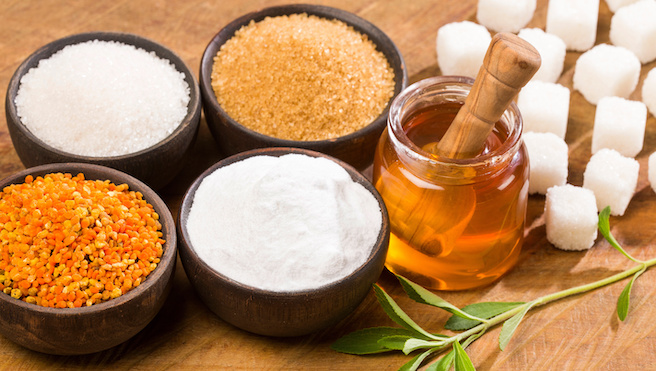
Popular sugar substitutes less likely to cause cavities

Popular sugar substitutes like xylitol, sucralose and allulose are much less likely to cause cavities than regular sugar, according to a new in vitro study, but they don’t actually stop tooth decay when sugar is also in the mix.
Researchers tested how the cavity-causing bacteria Streptococcus mutans responded to real sugars like glucose and sucrose versus these three sweeteners. Regular sugars quickly caused a sharp drop in pH to 3.5, creating the acidic environment that damages tooth enamel. In contrast, sucralose and xylitol didn’t cause much acid at all, and allulose only caused a small drop to 5.4 before leveling off at a safer pH of 5.7.
These sweeteners are not considered “cariogenic,” or cavity-causing, like sugar is, according to the study, which was published in JADA Foundational Science. However, when the bacteria were later exposed to sugar, they still produced just as much acid, even if the sweeteners had been used first.
“Xylitol is not an inhibitor of plaque acid production but rather a non-fermentative sugar alcohol,” the authors wrote.
This means these sweeteners don’t feed the bacteria, but they don’t stop them either when real sugar shows up.
The researchers said sucralose and xylitol appear safe for teeth, while allulose might still pose a risk for root decay — especially for older adults with receding gums. While these sweeteners are clearly better than sugar, they shouldn’t be seen as a shield against cavities if sugar is still part of the diet, the study noted.
Read more: JADA Foundational Science
The article presented here is intended to inform you about the broader media perspective on dentistry, regardless of its alignment with the ADA's stance. It is important to note that publication of an article does not imply the ADA's endorsement, agreement, or promotion of its content.